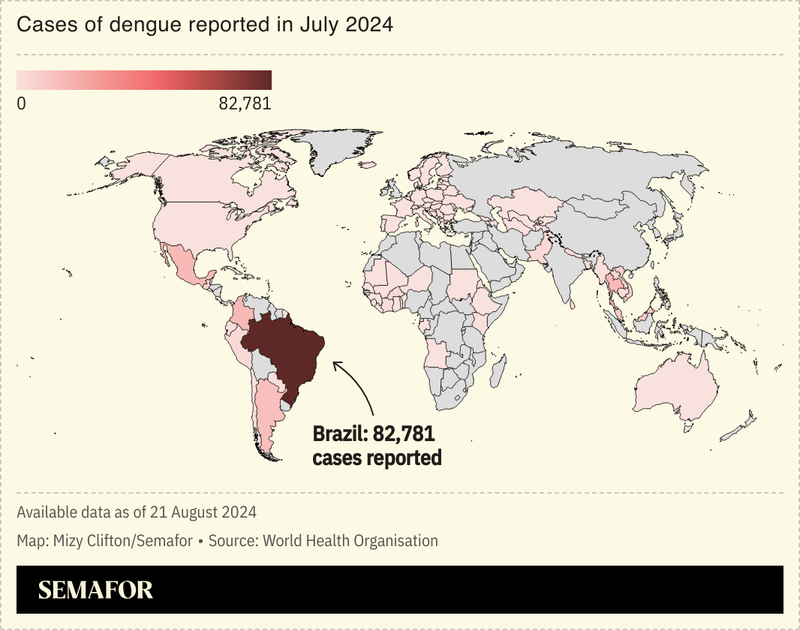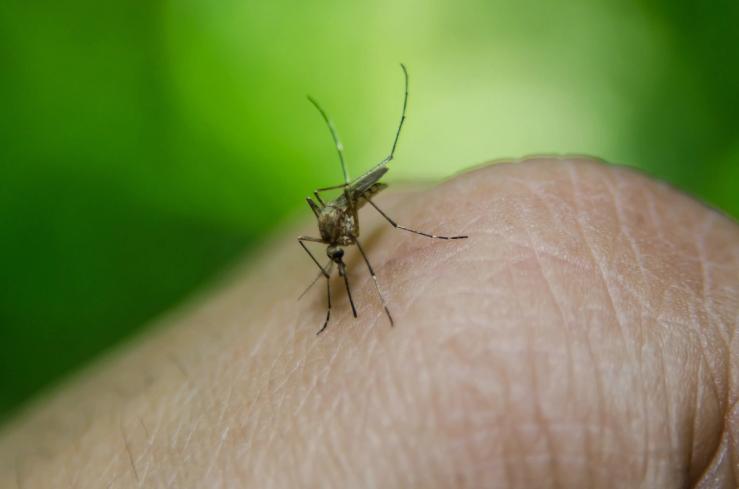The News
Mosquito-borne diseases spiked across the world this year, with experts pointing to climate change driving expanded mosquito breeding seasons.
In the US, eastern equine encephalitis, a rare disease with a 30% mortality rate, has killed five people. In Brazil, cases of Oropouche virus, which displays similar symptoms to its compatriot zika, are up 800% since last year. And Aedes albopictus, also known as Asian Tiger mosquito, was recorded in France and Germany for the first time this year.

SIGNALS
Global warming is helping mosquito transmission
Rising global temperatures have created longer and wetter summers in some regions of the world, the New Scientist reported. This is crucial for viral mosquito transmission, as the insects are able to emerge earlier in spring and only die off later into winter, researchers told the outlet. Across the US, this has resulted in a two week longer mosquito season compared to pre-2000. The number of habitable areas for mosquitoes is also increasing, with 131 local cases of dengue fever reported in Europe in 2023, compared to 71 the year prior, said the BBC.
Infection rates are likely to rise in coming decades
Scientists have sounded the alarm that over half of the world could be at risk of catching arboviruses — diseases spread by the bite of infected insects — by 2100, Sky News reported earlier this year. Researchers said that surpassing net-zero goals and limiting global warming to just 1 degree Celsius still puts 2.4 billion more people at risk of malaria or dengue infection, compared to the number of people at-risk before 2000. However, according to the current emissions trajectory, the figure is more likely to be 4.7 billion, experts told the outlet.
Travel is also driving spikes
Human travel has also led to the spread of many arboviruses internationally. Oropouche virus, for instance, is believed to have entered the US and Europe via travelers from Cuba and South America, The Washington Post wrote this week. Researchers told Axios that the accumulation of artificial waste by humans, like plastics, can create breeding grounds for mosquitoes, which may also have contributed to arbovirus spikes.



